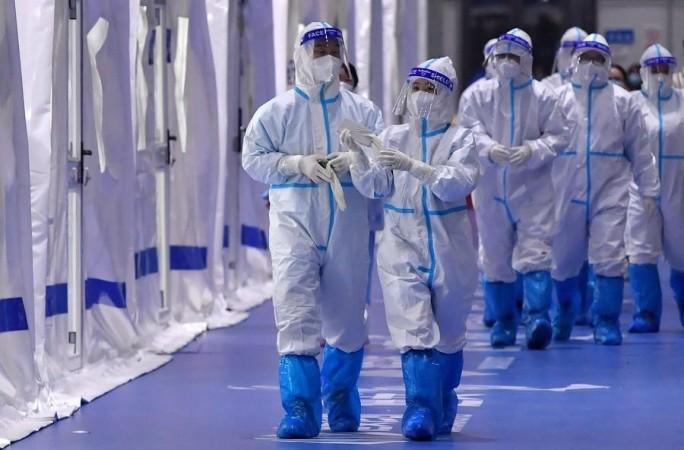Beijing's abrupt dismantling of zero-Covid controls has been welcomed by economists, even as the country braces itself for the human impact of letting the disease spread through a vulnerable population, media reports said.
The leadership's abrupt U-turn on how it handles the pandemic appears to have been triggered by protests against controls that began last month, a nationwide show of discontent on a scale China had not seen in decades, The Guardian reported.
Nearly one in five young people in cities are unemployed. Small and medium businesses have been particularly badly hit by the uncertainty, and the impact of unpredictable and often long-lasting shutdowns of entire cities.

But almost no one has been exempt. The founder of Foxconn, a key Apple supplier, had warned Beijing that controls threatened China's place in the global supply chain, the Wall Street Journal reported.
The IMF's Managing Director, Kristalina Georgieva, welcomed the "decisive" steps by Chinese authorities in "recalibrating Covid policies", and said they could boost the regional international economy.
"This can be very good for the Chinese people and economy, and also good for Asia and the world economy," she said after a summit in China's eastern Huangshan city. Premier Li Keqiang, who hosted the discussions, had conspicuously abandoned masks and social distancing, The Guardian reported.
On social media, public information videos showed smiling men and women taking off the face coverings that have been compulsory for years.

It was a whiplash-inducing reversal from years of messaging that the only way to stay safe was to avoid Covid, through extreme lockdown measures if necessary. For years, an increasingly fierce system of controls held increasingly infectious strains of disease at bay.
Medical experts say that was a wasted window of opportunity to protect the population and prepare the healthcare system for a wave of sick patients, The Guardian reported.
Georgieva also called for more vaccination and a quick expansion of options for medical treatment, to prepare for the wave of infections that will inevitably follow opening up.
The big challenge facing the leadership now is whether it can limit case numbers and deaths. China is an ageing country, with vaccination and booster rates lagging far behind what is needed to limit severe illness.
Only 40 per cent of people over 80, who are particularly vulnerable, have received their booster shots. And almost all of them will have got the domestically developed vaccine, which is less effective and long-lasting than Western alternatives, The Guardian reported.
Between 1.3 and 2.1 million lives could be at risk, a study by health analytics company Airfinity found. It based models on the impact of an outbreak earlier this year in Hong Kong, which also has an elderly population and low vaccination take-up.
Allowing the disease to spread at the start of winter in the northern hemisphere, when other respiratory diseases are circulating and people are crammed indoors, adds to the risks, The Guardian reported.
Those factors could mean a bumpy road ahead for China. If health services are overwhelmed, it may have to resort to the "rollercoaster" of temporary lockdowns that most western countries went through until they had boosted vaccination rates.
(With inputs from IANS)

















